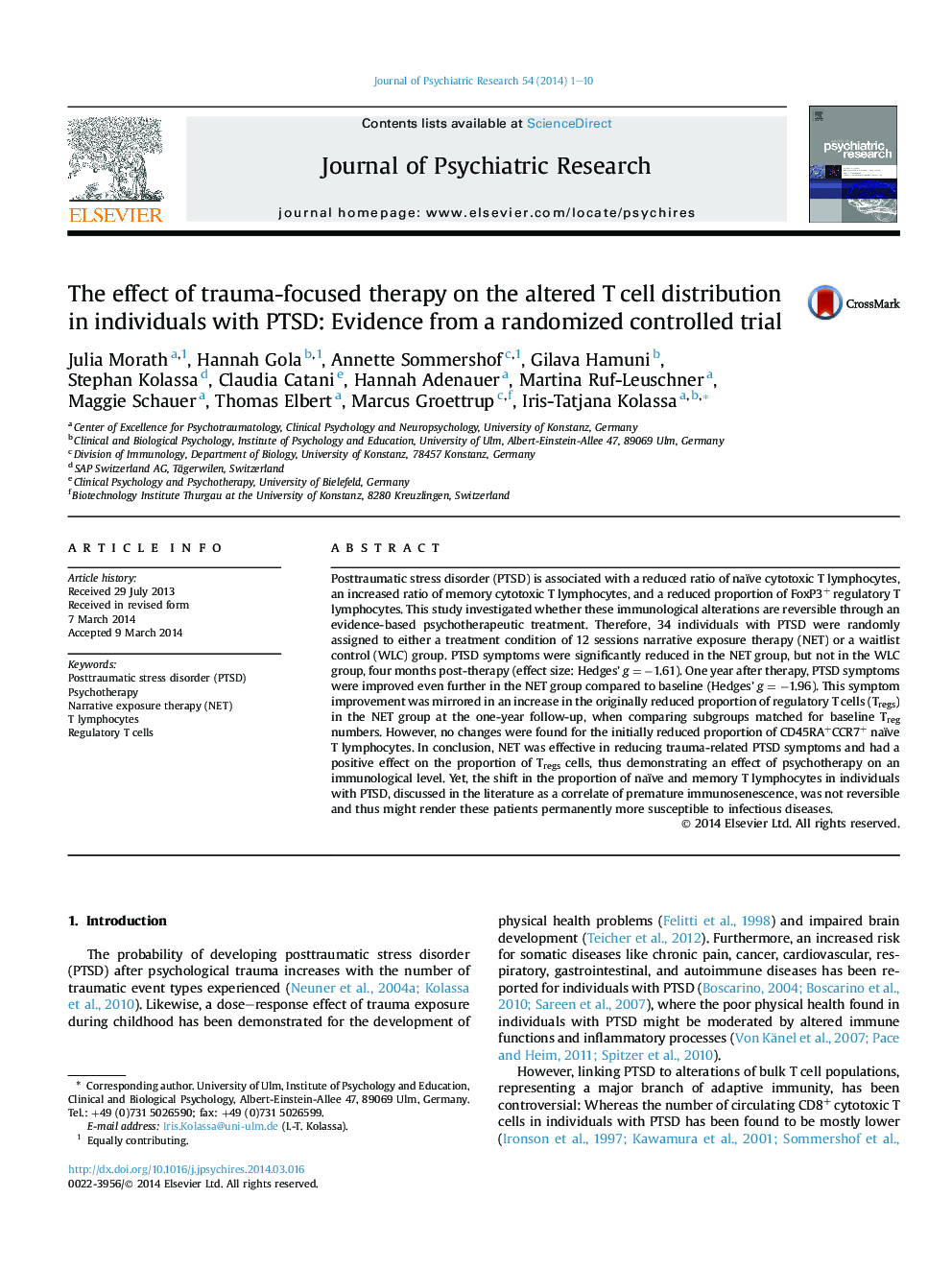| Article ID | Journal | Published Year | Pages | File Type |
|---|---|---|---|---|
| 6800981 | Journal of Psychiatric Research | 2014 | 10 Pages |
Abstract
Posttraumatic stress disorder (PTSD) is associated with a reduced ratio of naïve cytotoxic T lymphocytes, an increased ratio of memory cytotoxic T lymphocytes, and a reduced proportion of FoxP3+ regulatory T lymphocytes. This study investigated whether these immunological alterations are reversible through an evidence-based psychotherapeutic treatment. Therefore, 34 individuals with PTSD were randomly assigned to either a treatment condition of 12 sessions narrative exposure therapy (NET) or a waitlist control (WLC) group. PTSD symptoms were significantly reduced in the NET group, but not in the WLC group, four months post-therapy (effect size: Hedges' g = â1.61). One year after therapy, PTSD symptoms were improved even further in the NET group compared to baseline (Hedges' g = â1.96). This symptom improvement was mirrored in an increase in the originally reduced proportion of regulatory T cells (Tregs) in the NET group at the one-year follow-up, when comparing subgroups matched for baseline Treg numbers. However, no changes were found for the initially reduced proportion of CD45RA+CCR7+ naïve T lymphocytes. In conclusion, NET was effective in reducing trauma-related PTSD symptoms and had a positive effect on the proportion of Tregs cells, thus demonstrating an effect of psychotherapy on an immunological level. Yet, the shift in the proportion of naïve and memory T lymphocytes in individuals with PTSD, discussed in the literature as a correlate of premature immunosenescence, was not reversible and thus might render these patients permanently more susceptible to infectious diseases.
Related Topics
Life Sciences
Neuroscience
Biological Psychiatry
Authors
Julia Morath, Hannah Gola, Annette Sommershof, Gilava Hamuni, Stephan Kolassa, Claudia Catani, Hannah Adenauer, Martina Ruf-Leuschner, Maggie Schauer, Thomas Elbert, Marcus Groettrup, Iris-Tatjana Kolassa,
